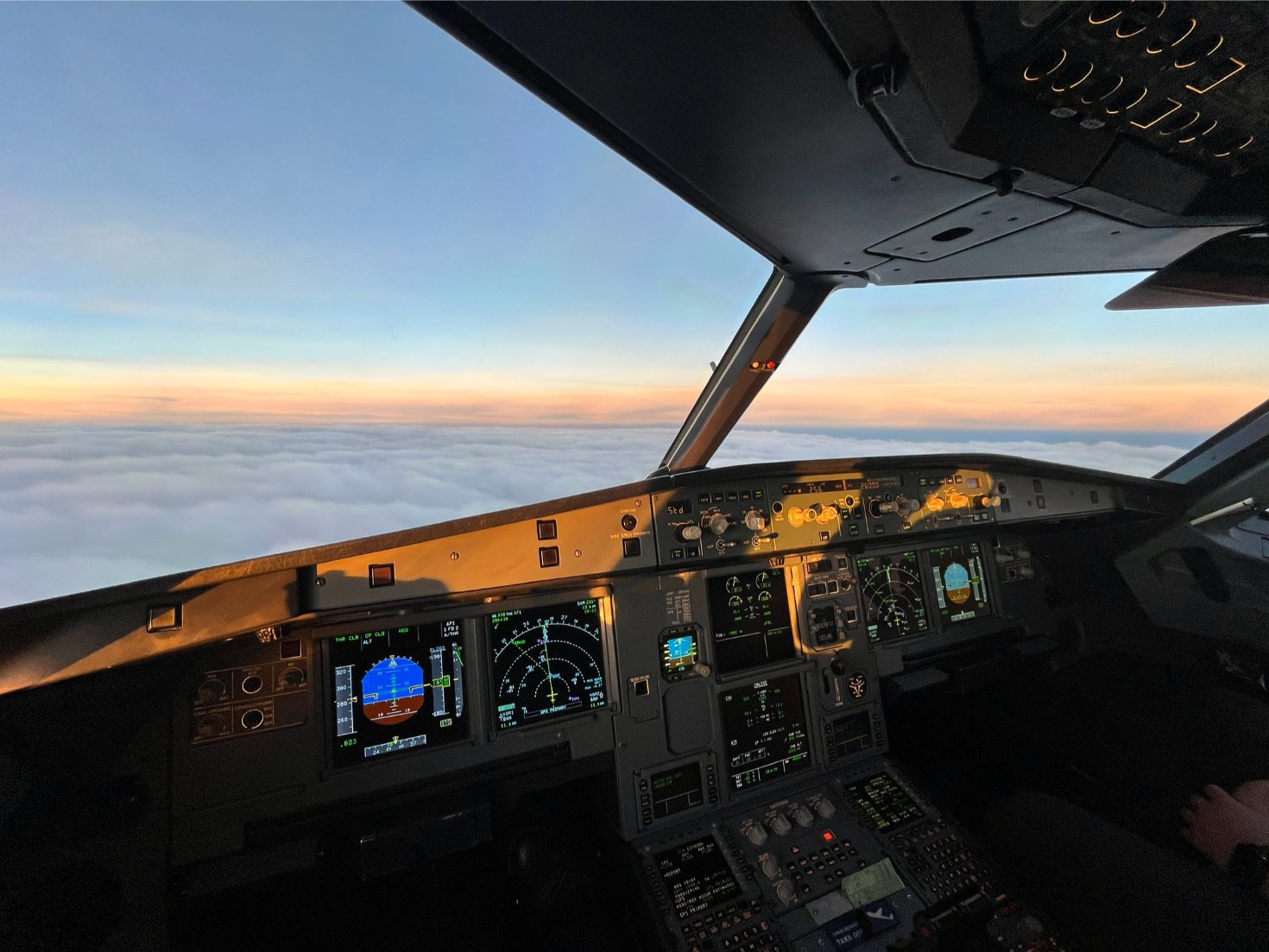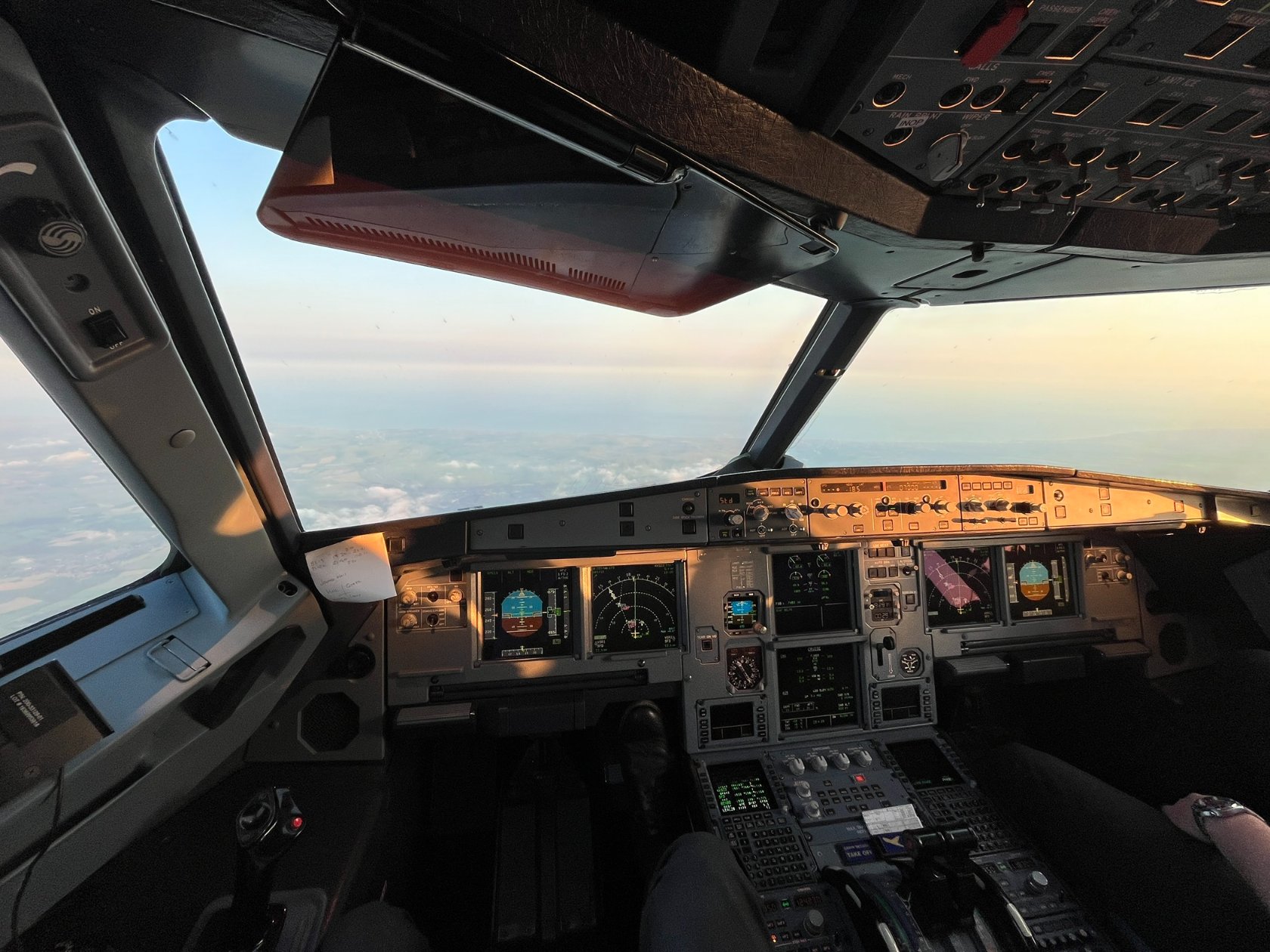
Airport Closure & Failure Management
A day filled with decisions, delays and expectation management. Another insight into what the daily life of an airline captain really consists of…
Share Post
Being an airline commander with 10 years flying experience, hopefully I’m in a reasonable position to give my two cents worth here.
This is an honest insight into the life of a modern-day airline pilot and as tempting as it is to give you the short answer, I’ll let you read on and draw your own conclusions, whilst also sharing my thoughts at the end. It’s worth noting that short haul life isn’t as glamorous as you see in the movies. No layovers for us. We turn up at our home base each day, fly, then return home at the end of the duty. Usually with an average commuting time of around 1 hour for most either side of this.
I’ve condensed this mammoth of a subject into a few summarised key parts; Which factors could contribute to a pilot feeling tired, the consequences of flying whilst tired, and ideas to improve the system.

Like most things in life — it all boils down to money 😊. Not our income as pilots, no no, we’re talking much bigger figures here in the form of the company’s profits (although related). At the end of the day an airline is a business, created to make such profit. Aside from aircraft costs, the biggest two expenses in any airline are crew costs (salaries) & fuel. One way to ensure they get bang for their buck when it comes to crew, is making sure they get as many working hours out of each crew member as legally possible. Makes sense on the front of it huh?
As pilots, we are ‘protected’ by legal limits to how many hours we can fly for each day, set out by flying regulatory bodies, not the airlines. These are known as “flight time limitations”. They vary from country to country, and the exact length of time is dependent on the time you checked in for work, and how many flights you’re operating that day. As a short haul pilot, I can operate between 1–6 flight legs across Europe each day, flying up-to 13 hours before we hit the legal limit.
Whilst this may not seem hugely excessive, this is flying time, which doesn’t include any time before spent on standby or commuting which can be multiple hours.
Unfortunately, airlines see these legal maximums as a target to work towards rather than avoid, in order to get the most out of their crews. Again, kind of seems legit & makes sense financially…
As an example of how this works in the real world, I recently had a day where I got woken pre-5am during my standby, with a request to come into work to do the rest of my standby in the airport. 16 hours after that phonecall, I was still operating an aircraft, perfectly within these “legal limits”. To put this into context for 9–5 WFH’ers — This is the equivalent of your boss asking you at 5pm, just as you’re about to close your laptop, to commence your next full day of work there and then, with no breaks, and do another 8 hours…I’d ask you to think about how alert & analytical you’d feel coming towards the end of that second 8 hour slog….do you feel like you’d be in a fit state to be making decisions which could impact not only your life, but hundreds of others? Now maybe there are some concerns …
You can read about a similar day in here.
Your circadian rhythm is essentially your internal biological clock which controls everything. From sleep pattern, body temperature, appetite, digestion, mood, the list goes on…
If you don’t set an alarm (& don’t stay up binging Netflix for too long!) your body will eventually settle into its natural circadian rhythm. You’ll likely begin to feel the benefits of this day to day, as being happier, healthier, and more yourself & full of energy as everything’s internally working as it’s naturally meant to.
The bane of any shift workers life is that damn alarm clock, and in the airlines it’s no different. There’s no better way to destroy your circadian rhythm than by being jolted awake to the piercing sound of your alarm clock, stabbing at your happy dreams like a cold knife through even colder butter at 02:00!
If you’re unfathomably disciplined enough to get yourself to sleep by 6pm the night before, then maybe the 02:00 alarm isn’t too much of a shock, especially when you’re in the routine of it. However, the airlines have another tool that tends to prevent any routine at all. This is called a transition.
In one working ‘block’ of 5 days, you can do multiple early shifts, and then by transitioned onto late shifts. Basically, just as your body is adjusting to getting out of bed at 2am, you can be expected to change to a late pattern the very next day, starting work in the afternoon/evening and not finishing until the early (or late!) hours the following morning. You’ll then also be back in later that same day to operate another late flight.
Now although that’s perfectly legal, I believe you need to be superhuman to do that without some sort of detrimental effect.
Operating a commercial airliner these days is well known to be one of the most stressful work environments out there. Physical stressors involve blasting your body from sea level to 8000ft altitude (height that the cabin pressurises to) multiple times per day, something the human body isn’t really designed for. You’re also breathing in very dry, recycled and often germ filled air. To top it all off, you’re extremely sedentary, locked in a box for hours on end and if you wish to stand up or go for a number 1, you have to call a member of cabin crew to come and let you out (usually immediately followed by concerned passengers asking you “shouldn’t you be in the flight deck flying the plane?” until you return to your little box).
Mental stressors include the underlying pressure of having hundreds of lives in your hands all day. This may seem like an exaggeration, but we can fly close to 1000 different humans during a single shift. One major cock up can indeed have very serious impacts, as we unfortunately all know.
Flying through busy airspace can be challenging enough on a smooth day, throw in some challenging weather and ATC slot delays for good measure, a few technical issues to deal with along with some crew & passenger problems to sort out, and your brain is going to working at its absolute capacity.
Having built an idea of what a typical working week can look like, you hopefully get a bit of an idea of how your pilot could be feeling on their 5th working day in a row. Maybe what made financial sense at the start, is starting to seem not so smart….
Symptoms of tiredness include cognitive disfunction, impaired decision making, lack of focus & concentration, inability to stay awake/alert, amongst many others. Not necessarily things you’d like your pilots to be experiencing.
Whilst having two pilots & plying them both with plenty of coffee can mitigate lots of threats throughout the day, even with these symptoms underlying, it’s a bit like putting a plaster over a knife wound. Some threats are inevitably going to seep through.
Minor consequences of airline pilots flying whilst tired include things such as missing radio calls meant for you, misinterpreting information, taking wrong taxiways at airports. These probably happen more often than you think and on their own, don’t pose a huge risk to safety. However, they can certainly act as the first part of the jigsaw puzzle that ends up being a more severe incident.
The most major consequence is unfortunately obvious. There are sadly many examples in the past where fatigue and tiredness has been found as the root cause of the accident and lead to heavy loss of life, and plenty more near misses due to the same issues.
A study from the BBC found that 80% of plane crashes are caused by pilot error, with 20% of these cases fully attributable to tiredness. The most notable ones can be found here.
Whilst the loss of life is obviously horrific and the main concern here, it’s worth noting the financial impact a crash can also be fatal for the company. Any airline that gets an unsafe reputation is bound to be avoided by passengers, and tends to either re-brand after such events, at huge cost, or continue on their downwards spiral to bankruptcy.
Now pushing crews to their legal limits really doesn’t seem to make so much sense….
The simplest solution would be for airlines to instigate their own, safer, shorter flight time limitations and not schedule their crews to be working up to the legal maximums. Although this would hugely boost moral amongst crew and massively increase the long-term safety for crew & passengers, none of that is instantly tangible when it comes to short term number crunching in the accountants office.
This option would require an airline to heavily invest in more crew off their own back. In an industry with such low margins and fierce competition, any airline that did this simply wouldn’t be around for very long unless customers paid lots more per ticket. Therefore, this option is probably out the question.
Another option is for regulatory bodies to tighten up their nationwide Flight Time Limitations. As all airlines have to adhere to these, there would be no advantage or disadvantage bought to any particular company.
So, to conclude, in my personal view it’s highly likely you’ve been flown by tired airline pilots. The world simply wouldn’t be functioning as it does if they didn’t. Whilst any pilot can refuse to operate an aircraft if they believe they are fatigued to the point where the safety of the aircraft would be compromised, employers aren’t the biggest fans of staff who don’t do what they’re paid to do, so it’s not something that’s as commonplace as it should be.
Thanks for reading and I’d really love to hear your thoughts. If anyone has any comments, or suggestions for other ways of improving the system, or other aspects of the job you’d like to hear about, please let me know 😊
Also if you’d like me to put out more insightful posts, please let me know!
For anyone interested in more stories of what life is like on the line as a Captain, see a few more posts here;
What life’s actually life as an Airline Captain


A day filled with decisions, delays and expectation management. Another insight into what the daily life of an airline captain really consists of…

It’s a Sunday morning and I’m jolted awake by the piercing sound of my phone ringing at 5am for what is going to be (unbeknown to me at this point) a whopping 16+ hour duty day…
Copyright © 2024 Pilot Bible
2 Responses
Everything is very open with a precise clarification of the issues. It was definitely informative. Your website is very useful. Thanks for sharing!
Excellent post!